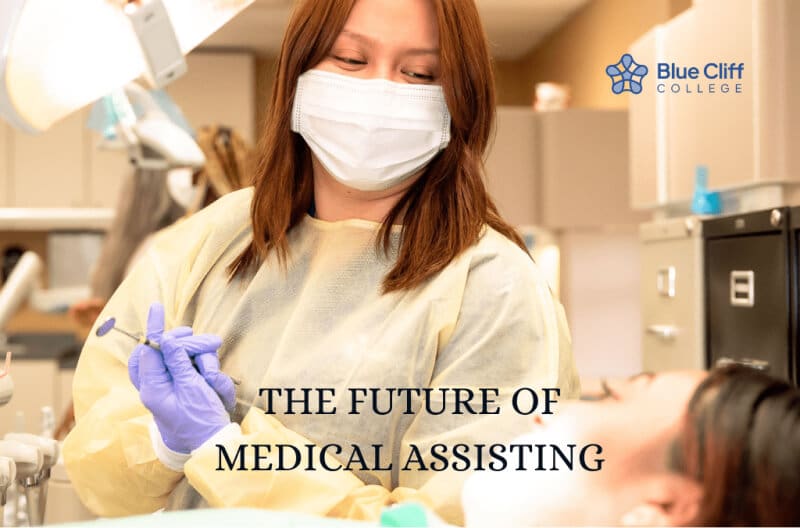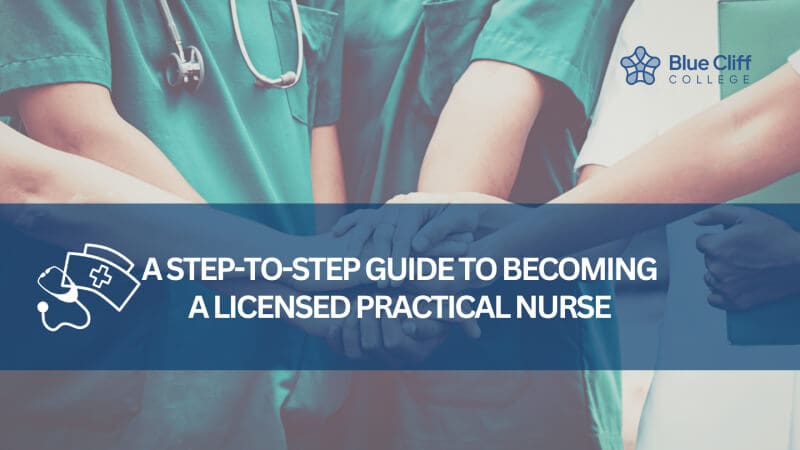Considering a career in the healthcare profession? Medical assisting might be the right path for you.
Medical assistants assist healthcare professionals in the setting of a clinical healthcare office. They perform non-invasive procedures and help with other administrative tasks under supervision.
If you’re interested in a career as a medical assistant, you will want to be aware of the trends and predictions of this career going forward. Read on to learn more about the future of medical assisting.
Table of Contents
The Future of Medical Assisting
Technological Advancements
- AI & Machine Learning Many clinical settings have implemented artificial intelligence into their data entry systems. This artificial intelligence can notice specific patterns within the patient’s medical data. From there, they can point out certain diagnoses that the patient may have.
- Telemedicine & Virtual Care Over the past few years, telemedicine and virtual care have become much more mainstream. This means that those in the medical assisting field will now be trained to perform their routines virtually as well as in person. Certain patients may need remote equipment for their vital measurements such as glucose monitors and blood pressure cuffs.
- Electronic Health Records (EHRs) & Patient Data Management Many healthcare facilities are switching from paper records to electronic health records. These records contain confidential, medical information for each patient. EHRs are convenient because they provide an easy way to share medical documents with other healthcare offices.
Increasing Demand for Medical Assistants
- Aging Population & Healthcare Workforce Shortages One of the main reasons that medical assistants are in demand is due to the aging population. According to Population Reference Bureau, “elderly ages 65 and older will make up about 20 percent of the U.S. population by 2029.” Likewise, healthcare workforce shortages remain a big issue, especially since the COVID pandemic.
- Cost-Effective & Efficient Care Models When it comes to caring for patients, healthcare providers are now looking for new cost-effective methods to treat their patients. Healthcare providers are also using efficient care models that are integrated and team-based.
- Job Outlook & Employment Projections According to the U.S. Bureau of Labor Statistics, “employment of medical assistants is projected to grow 16 percent from 2021 to 2031.” This means that approximately 117,800 positions should be available for those wishing to go into the medical assisting field.
Role of Medical Assistants in Preventive Care
- Health Education & Promotion Medical assistants in preventive care are encouraged to educate their patients on health and wellness. This includes nutrition tips, exercise tips, and advice on how to manage stress.
- Chronic Disease Management & Care Coordination Medical assistants also provide patients with ways to manage and care for their chronic diseases. This is based on their previous diagnosis by their doctor.
- Screening & Early Detection Screening and early detection of conditions like cancer are other roles that medical assistants take on. They will perform things like basic laboratory tests, prepare patients for X-rays, and prepare blood samples.
New Healthcare Models
- Patient-Centered Medical Homes (PCMHs) Patient-Centered Medical Homes are a model to improve primary care and make it more cost-efficient. This model allows for a better relationship between healthcare providers and their patients.
- Accountable Care Organizations (ACOs) Accountable Care Organizations are healthcare providers who come together to give new and improved care to their Medicare patients. ACOs provide patients with higher-quality services and better disease management.
- Interprofessional Care Teams and Collaboration Other practices that are commonly seen in the medical field are interprofessional care teams and collaboration. This process brings medical professionals of different backgrounds together to discuss and practice new methods. The goal of this is to decrease overall healthcare costs.
Education and Training
- Accreditation & Certification Requirements All medical assistants must first obtain a high school diploma. You must then receive accreditation and certification from a reputable institution like Blue Cliff College. After applying for your medical assistant certification, you must then pass the CMA exam before you are fully licensed.
- Continuing Education & Professional Development Medical assistants are required to renew their licenses every five years. That’s because the medical field is constantly advancing, so they must be up-to-date with new and emerging trends.
- Emerging Areas of Specialization & Expertise Medical assistants are also educated in the specialties of different medical fields. This may include cardiology, geriatrics, neurology, and more.
Soft Skills and Competencies
- Patient-Centered Communication & Empathy Like others in the medical field, medical assistants are taught how to have proper bedside manners with their patients so they feel safe and comfortable. This means communicating in a warm, soft tone and displaying empathy for the patient.
- Cultural Competency & Diversity Awareness Medical assistants are also taught cultural competency and diversity awareness. This will teach them how to be accepting of patients with different cultures and backgrounds.
- Professionalism and Ethical Considerations Medical assistants are required to act as professionals at all times. They must treat all patients with respect and keep all medical information confidential.
Start Your Career in Healthcare Industry
If you’re thinking about starting a career as a medical assistant, Blue Cliff College will help set you on the right track. By enrolling in our Clinical Medical Assisting Diploma Program, you can choose between our 9-month day classes or 15-month night classes, which are available for enrollment every 6 weeks. If you wish to take classes online, you can enroll in our 18-month Online Clinical and Administrative Medical Assistant Program. We also offer a variety of other online and in-person programs in the healthcare industry, with locations in Mississippi and Louisiana. If you are interested in any of our educational programs, contact us today.





